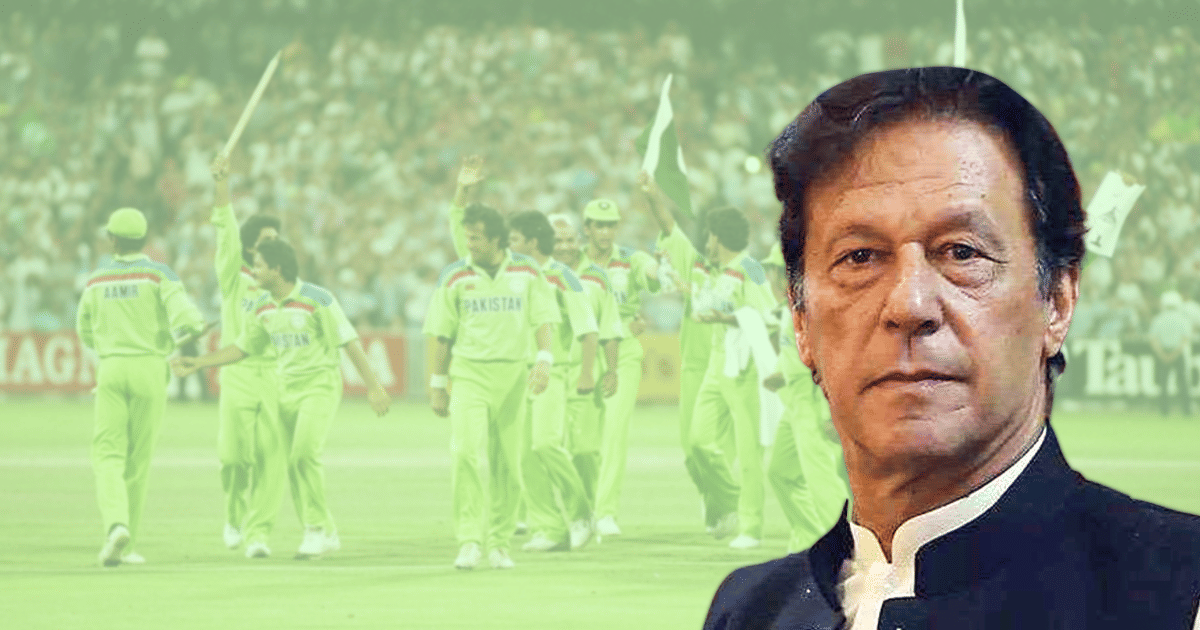New Delhi: Former cricket star and ex-Prime Minister of Pakistan, Imran Khan, has long been a controversial figure, balancing both his sports career and political influence with a complex narrative around nationalism and rivalry with India. As Pakistan navigates challenges in its bid to host the 2025 ICC Champions Trophy, stories from Khan’s past and his political alliances have resurfaced, sparking fresh discussions on the often-tense relationship between India and Pakistan.
The Past That Haunts: Imran Khan’s Statements and ISI Connections
Imran Khan, revered as one of Pakistan’s greatest cricket captains, took on a broader role as he transitioned from sports to politics, eventually serving as the country’s prime minister. His political rise, however, was not without controversy. According to former Indian Army officer and diplomat Captain G. Parthasarathy, Imran was known for a particularly charged attitude toward playing against India. Parthasarathy shared in an article that during a meeting in Karachi in 1982, he had observed Khan’s deep-seated feelings about playing cricket with India.
Reportedly, Khan once stated that he approached matches with India with a mindset of “jihad,” linking the competitive spirit of the game with the political tension over Kashmir. According to Parthasarathy, Khan viewed the game against India not just as a sport, but as part of a broader ideological and nationalist struggle.
Further complicating this narrative is Khan’s alleged association with Pakistan’s intelligence agency, the ISI. Parthasarathy’s article also shed light on Khan’s association with Lieutenant General Hamid Gul, a former ISI chief and staunch Islamist who supported Khan’s political rise. General Gul, known for his anti-India stance, reportedly played a pivotal role in bringing Khan into the political mainstream, using his influence to rally support. This association raised concerns, as Gul was known to support terrorist networks in Afghanistan, Punjab, and Kashmir, as well as labeling Osama bin Laden a “martyr” after 9/11.
Reverse Swing and Allegations of Ball-Tampering
Khan’s cricketing strategy during his captaincy also came under scrutiny. Known for his masterful reverse swing bowling, he allegedly took advantage of questionable practices. Parthasarathy claimed that, in one particular game, the umpire on the field—allegedly supporting the Pakistani team—kept the ball in his pocket, scratching it in a way that would enable reverse swing to Khan’s benefit. While reverse swing is a recognized technique, it requires considerable skill and specific ball conditions, and tampering accusations have often clouded its use. Khan’s rumored approach raised eyebrows, as it suggested a blurring of the lines between competitive spirit and gamesmanship.
Pakistan’s Struggles with the Champions Trophy 2025
In the present day, Pakistan’s cricket authorities are under pressure regarding their hosting rights for the 2025 ICC Champions Trophy. The Pakistan Cricket Board (PCB), led by Chairman Mohsin Naqvi, has been struggling to ensure the event’s smooth planning. However, due to regional security concerns, tensions with India, and logistical challenges, Pakistan’s ability to host the tournament is uncertain. India’s position on this matter remains consistent, with Foreign Minister S. Jaishankar reiterating that Pakistan’s policies are often at odds with India’s expectations for a peaceful, sports-friendly neighbor.
Mixed Messages on Friendship and Rivalry
Despite the PCB’s efforts to ease relations, the underlying distrust remains palpable. Mohsin Naqvi, who also serves as a minister in Prime Minister Shahbaz Sharif’s cabinet, recently made overtures to foster better diplomatic relations. However, such attempts are often met with skepticism in India, where the sentiment leans towards treating Pakistan with caution due to its inconsistent diplomatic stance.
In Pakistan, cricket has often been more than just a game—it’s seen as an extension of national pride. With figures like Khan representing both sports and political spheres, the lines between rivalry and hostility have blurred over the decades. For many, cricket is both a unifying factor and a symbol of competition, especially against India. Khan’s past comments and the PCB’s struggles underscore the challenges of maintaining this balance.
Shifting Narratives and the Way Forward
With its challenges in hosting the Champions Trophy, Pakistan finds itself at a crossroads. The event’s significance lies beyond just sports; it represents an opportunity to showcase Pakistan on a global stage. However, as past controversies resurface, Pakistan faces a dilemma. Balancing its desire for international recognition with the need to address longstanding internal issues, such as security and stability, will be essential if Pakistan hopes to win over the ICC and neighboring nations.
The resurfacing of Imran Khan’s past remarks and political alliances serves as a reminder of the complex relationship between India and Pakistan. While cricket continues to be a major source of pride and competition, navigating these tensions requires a delicate approach—one that prioritizes peace and diplomacy over rivalry and contentious rhetoric.


